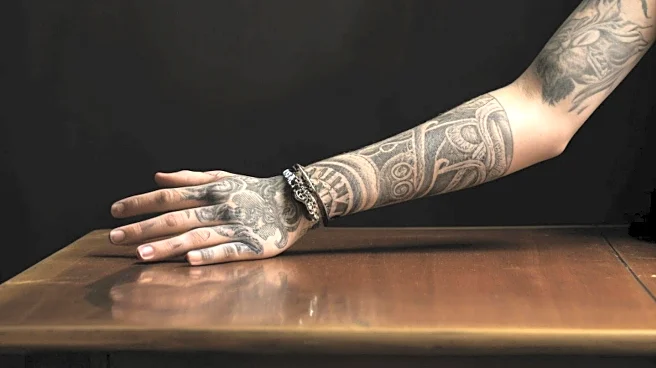What is the story about?
What's Happening?
South Korea is on the verge of legalizing tattoo artistry, a practice currently restricted to medical professionals due to a 1992 Supreme Court ruling. The National Assembly is expected to pass a landmark bill allowing non-medical personnel to give tattoos, marking a victory for thousands of tattooists who have long campaigned for change. The Tattooist Act would introduce official licenses for tattoo artists, requiring annual hygiene education courses. The bill reflects changing public sentiment towards tattoos, which were once associated with gangsters but are now seen as a form of self-expression. Despite widespread adoption, tattoo artists face legal risks, including fines and imprisonment, if caught inking people. The government has not aggressively enforced these rules, allowing the industry to thrive in the shadows.
Why It's Important?
The legalization of tattoo artistry in South Korea signifies a cultural shift, acknowledging tattoos as a legitimate form of art and self-expression. This change could empower artists, providing them with legal recognition and protection, and potentially boosting the economy through increased demand for tattoo services. The bill's passage would align South Korea with other developed countries that have embraced tattooing, enhancing its cultural and artistic landscape. However, the transition may face challenges, including opposition from the medical community and the need to establish regulatory frameworks to ensure safety and hygiene.
What's Next?
The Tattooist Act is set to face a vote in the National Assembly, with bipartisan support and backing from the Health Ministry. If passed, the law will take effect after a two-year grace period, during which guidelines for licensing and hygiene standards will be developed. The legalization process may lead to increased visibility and acceptance of tattoos in South Korean society, influencing cultural trends and artistic expression.
















